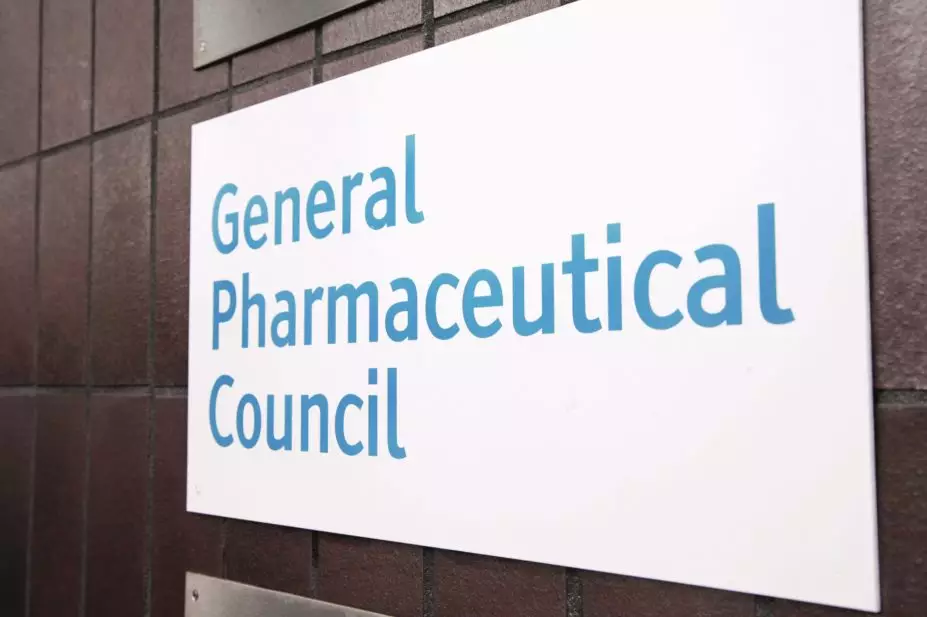
General Pharmaceutical Council
Open access article
The Royal Pharmaceutical Society has made this article free to access in order to help healthcare professionals stay informed about an issue of national importance.
To learn more about coronavirus, please visit: https://www.rpharms.com/resources/pharmacy-guides/wuhan-novel-coronavirus
All preregistration pharmacists on the provisional register must be risk-assessed by their employer before they can start work, the General Pharmaceutical Council (GPhC) has said.
The regulator — which has created the register, following the postponement of the 2020 registration assessments because of the COVID-19 pandemic — said in a policy document that the owner of the pharmacy where the trainee will work, or the superintendent or chief pharmacist, must assess the registrant’s experience; the work that is carried out in the pharmacy where they will practise; and the “number and qualifications” of other members of the pharmacy team before they can start working.
The GPhC added that the provisional registration of pharmacists will last for one year, from 1 July 2020 until 1 July 2021, and that pharmacists registered in this way must take the registration assessment as soon as it is possible.
Those who have previously failed the assessment will not be allowed to join the provisional register.
Trainees can apply to join the register from July 2020 and begin working from 1 August 2020. The regulator has said it will not extend the provisional registration period.
Under the new arrangements, tutors of preregistration pharmacists will be asked to provide a “final declaration” that their trainees have met all 76 performance standards and that they believe the trainee is safe to be registered.
In their declaration, the tutors must also confirm that another registered pharmacist or other healthcare professional, who has been involved in the preregistration pharmacist’s training, agrees that they are fit to practise.
Other conditions placed on the provisional registration of pharmacists include that they can only practise for an organisation that has a superintendent or chief pharmacist, or is owned by a pharmacist; and that they can only work under the guidance of a “senior pharmacist”, who must either be the superintendent pharmacist; chief pharmacist; pharmacy owner; or a pharmacist with two years’ experience that has been nominated by one of those listed.
Duncan Rudkin, chief executive of the GPhC, said the regulator had “balanced risks and benefits” when deciding the form that provisional registration would take.
“The Council’s final decisions have been guided by a set of principles, including maintaining standards for entry to the register to protect patient safety and quality of care, and the importance of maintaining the workforce pipeline so that pharmacy can continue to serve the needs of patients,” he said.
The GPhC announced on 26 March 2020 that it would be postponing the registration assessments planned for June and September 2020.
Gail Fleming, director for education at the Royal Pharmaceutical Society, said the GPhC’s update was “welcome” as it gives clarity for employers and preregistration pharmacists.
“In line with our views on Foundation Pharmacist training, we believe that all pharmacists new to the register should have access to structured support and guidance from within the profession and therefore we welcome the requirement for this,” she added.
Regan McCahill, president of the British Pharmaceutical Students’ Association (BPSA), said the prospect of provisionally registered pharmacists being offered worse employment terms and conditions had been a concern throughout the consultation process.
However, she added that they had “been reassured multiple times on this matter”.
“Having now seen the final decision made by the GPhC, our concerns remain,” she said. “And we will be working with the GPhC and other key stakeholders in the near future to identify ways in which we can minimise such concerns.”
McCahill said a statement on contract terms for provisionally registered pharmacists “may be appropriate”.
She added: “In the primary care sector, we are concerned that some employers may be reluctant to employ a provisionally registered pharmacist, due to a lack of security in their ability to continue in their role beyond the assessment date, a date which nobody yet knows”.
She said the required risk assessments were also likely to increase the cost to employers, which may affect their decisions on who to employ.
Other BPSA concerns were that some employers, such as primary care networks, may not have a chief or superintendent pharmacist, which is a prerequisite for employing provisionally registered pharmacists.
Khalid Khan, head of training and professional standards at Imaan Healthcare, said the GPhC’s decision that provisionally registered pharmacists could act as Responsible Pharmacists means that many hundreds of extra pharmacists should be able to find jobs.
“Very few smaller independent pharmacies employ second pharmacists, which could have meant 2,000 people sat at home for six months, with no income and losing their knowledge in advance of their assessment,” he said.
“I was pleasantly surprised that the GPhC did make some arrangements that will allow them to work as responsible pharmacists with a supportive network around them.”
Paul Day, director of the Pharmacists’ Defence Association (PDA), welcomed the GPhC’s announcement, but said the big test would come when provisionally registered pharmacists began to work.
“Individuals want to know ‘how much am I going to be paid?’, ‘what happens if I fail the assessment?’ and so on,” he said.
Day added that the PDA’s indemnity fee would remain the same for provisionally registered pharmacists as it was for newly qualified pharmacists.


